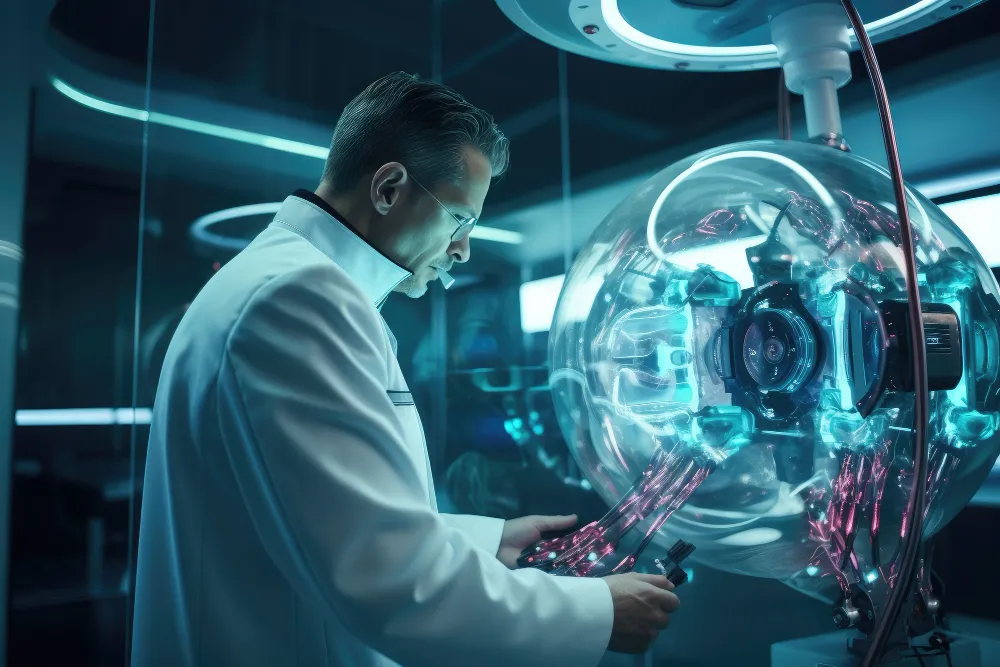Biotechnology, a field at the intersection of biology and technology, is revolutionizing industries and reshaping our understanding of life itself. From breakthroughs in medicine to advances in agriculture, biotechnology harnesses the power of living organisms and biological systems to create products and solutions that address some of the most pressing challenges of our time. In this blog post, we explore the fundamentals of biotechnology, its key applications, and the profound impact it is having across various sectors.
What is Biotechnology?
Biotechnology involves the use of living organisms, cells, and biological processes to develop products and technologies that improve the quality of life. It encompasses a wide range of techniques and applications, from traditional methods like selective breeding to modern innovations such as genetic engineering and synthetic biology. By leveraging the principles of biology, biotechnology enables scientists to manipulate and optimize biological systems for specific purposes, leading to the creation of new drugs, agricultural products, and industrial processes.
The roots of biotechnology can be traced back thousands of years, with early examples including the fermentation of beer and bread, as well as the domestication of plants and animals. However, the modern era of biotechnology began in the 1970s with the development of recombinant DNA technology, which allows for the precise manipulation of genetic material. This breakthrough paved the way for a host of innovations, from genetically modified organisms (GMOs) to gene therapy and beyond.
Key Applications of Biotechnology
Biotechnology has a wide array of applications across multiple industries, each with the potential to drive significant advancements and improve human well-being. Some of the most prominent areas of biotechnology include:
- Healthcare and Medicine: One of the most impactful areas of biotechnology is in healthcare, where it is driving the development of new treatments, diagnostics, and therapies. Biotechnology has enabled the production of recombinant proteins, such as insulin, which are essential for treating conditions like diabetes. Additionally, biotechnological advances have led to the development of monoclonal antibodies, which are used in cancer treatment, autoimmune diseases, and infectious diseases.
Gene therapy, another groundbreaking application of biotechnology, involves the modification of an individual's genetic material to treat or prevent disease. This technique holds promise for treating genetic disorders, such as cystic fibrosis and sickle cell anemia, by correcting or replacing faulty genes. Furthermore, biotechnology is at the forefront of personalized medicine, where treatments are tailored to an individual's genetic profile, improving efficacy and reducing side effects.
- Agriculture: Biotechnology is also transforming agriculture by improving crop yields, enhancing resistance to pests and diseases, and reducing the environmental impact of farming. Genetically modified crops, such as Bt cotton and Roundup Ready soybeans, have been engineered to express traits that protect against pests and herbicides, leading to higher productivity and reduced reliance on chemical inputs.
In addition to crop improvements, biotechnology is being used to develop sustainable agricultural practices. For example, researchers are exploring the use of biofertilizers and biopesticides, which utilize beneficial microbes to enhance soil health and protect plants from pests, reducing the need for synthetic chemicals. Biotechnology is also playing a role in addressing food security challenges by developing crops that can thrive in challenging conditions, such as drought or poor soil quality.
- Environmental Biotechnology: Beyond healthcare and agriculture, biotechnology is contributing to environmental sustainability through the development of biofuels, bioplastics, and bioremediation technologies. Biofuels, derived from renewable biological sources like algae or plant biomass, offer a sustainable alternative to fossil fuels, reducing greenhouse gas emissions and dependence on non-renewable resources.
Bioplastics, made from biodegradable materials, provide an eco-friendly alternative to traditional plastics, which are derived from petroleum and contribute to environmental pollution. Bioremediation, another application of environmental biotechnology, involves the use of microorganisms to clean up contaminated environments, such as oil spills or toxic waste sites, by breaking down harmful substances into less toxic forms.
The Future of Biotechnology
As biotechnology continues to advance, its potential to address global challenges and improve human life is immense. Emerging fields like synthetic biology, which involves designing and constructing new biological parts and systems, are pushing the boundaries of what is possible. From engineering microbes to produce biofuels to developing new materials with unique properties, the future of biotechnology is full of exciting possibilities.
However, with these advancements come ethical and societal considerations. Issues such as genetic privacy, the potential impact of GMOs on biodiversity, and the equitable distribution of biotechnological benefits are critical areas that require careful thought and regulation.
Conclusion
Biotechnology is a powerful tool that is transforming industries and offering innovative solutions to some of the world's most pressing challenges. From revolutionizing healthcare and agriculture to promoting environmental sustainability, the impact of biotechnology is far-reaching and profound. As we continue to explore and harness the potential of biotechnology, it is essential to navigate the ethical and societal implications to ensure that these advancements benefit all of humanity and contribute to a healthier, more sustainable future.





















